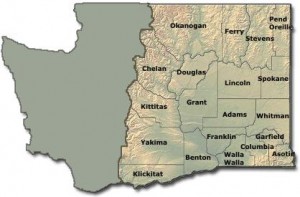“We recently worked with an HIV positive individual in Wenatchee who ran out of their medications,” said Gaye Weiss, the Executive Director of Spokane AIDS Network (SAN). “This person had recently moved, didn’t have access to services, and was not yet on the state program. Thanks to a recent grant from Pride Foundation, we were able to help that client get access to the essential medications they needed. Without these funds, it’s likely that this person would have gone several days without medication.”
Unfortunately, for every success story, there are also stories of isolation, loneliness, and stress. Growing up in a small, rural community limits access. For people with HIV, living in a remote community is especially challenging, as they rely on critical services and support to maintain their health.
That’s where the work of Spokane AIDS Network comes in. They’re collaborating with regional health providers in 20 counties in Eastern Washington to expand access to services for rural communities. SAN provides stabilizing support services to clients living with HIV and other chronic conditions—with an emphasis on people who have been marginalized or aren’t prioritized under a traditional healthcare umbrella.
“We have been able to help people become self-sufficient by providing food vouchers, transportation, a pantry program that serves over 28,800 meals each year, and housing and utility assistance, in an effort to gain and maintain a suppressed viral load across Eastern Washington,” said Gaye.
The impact of filling the service, support, and access gap in these communities has been tremendous and invaluable.
Gaye shared another story of an individual living in Spokane where this proved to be true: “This person relies on an electric wheelchair to get around and a caregiver to take them to the doctor’s office to keep appointments. And that meant that the caregiver was actually lifting the person into his truck, and putting the electric wheelchair in the back of the vehicle. Pride Foundation funds helped to purchase a collapsible ramp, so now this person is self-reliant and is able to get to doctors’ appointments, go to the bank, or to the grocery store on their own. [It was] life changing for that individual.”
SAN serves about 300 clients for healthcare coordination in Eastern WA. That these individuals are able to live where they are and still receive the support they need to survive without fear or stigma, is a powerful thing.
Gaye realizes that more work lies ahead, noting, “The more we do, the more we touch, the more impact we have.”
This work is exponential. Pride Foundation is energized by our partnership with SAN and is committed to increasing support and services to rural LGBTQ individuals living with HIV.
Gunner Scott is Pride Foundation’s Regional Development Organizer in Washington. Email Gunner.
